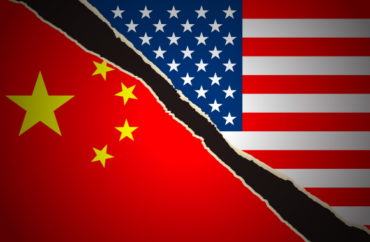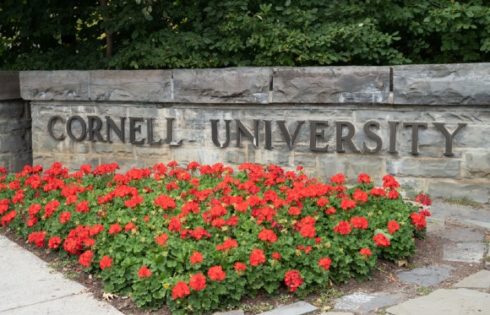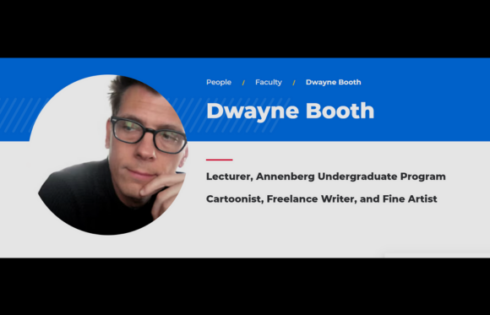
Bipartisan student effort calls for divestment from ‘entities complicit in Uyghur genocide’
An advocacy group is recruiting students from both major political parties to push for university divestment from Chinese government-controlled entities.
Athenai Institute co-founder Caleb Max told The College Fix the organization is working to build on the victories it has achieved since he and two other George Mason University students founded it in 2020.
“Athenai started as a sort of blending together of Republicans and Democrats to advocate for schools to remove their Confucius Institutes because of their funding by China, which has human rights violations,” he said.
The institute is a nonpartisan nonprofit dedicated to countering the Chinese Communist Party’s influence on college campuses through student-led activism. Its mission is to educate people about the dangers posed by CCP influence on campuses and urge universities to “disentangle themselves from the CCP.”
The institute currently is working to counter “trans-national repression,” or the efforts by CCP proxies – like the Confucius Institutes and Chinese embassies – to censor Chinese students at American universities and force them to tow the party line, Max told The Fix in a recent phone interview.
Many Chinese students are inclined to adopt American ideas and values after coming to the U.S., he said. However, almost all Chinese student unions are controlled by the CCP – a phenomenon that allows the party to “crack down” on apostates, he said.
Max said Athenai is considering different ways of countering this, which could include founding independent Chinese student unions to present an alternative to those controlled by the CCP.
Given China’s instability and downward trend, Max told The Fix these efforts are critically important as a means of ensuring there will “be a generation of American-trained next-generation Chinese … who can take [American values] back home” to aid in rebuilding China after its inevitable collapse.
Though the CCP still has a firm grasp on China, American-trained Chinese students present an opportunity to sow seeds that will bear fruit in the next generation, Max said.
MORE: Biden comes through for China, withdraws Confucius Institute disclosure rule
One of Athenai’s first efforts was to “advocate for schools to remove their Confucius Institutes … because of their funding by China,” Max told The Fix.
Max said the CCP-funded Confucius Institutes functioned essentially as a United States-based arm of the Chinese government. As a result, he said they posed considerable cause for concern, given China’s human rights violations and its efforts to restrict academic freedom in Hong Kong and elsewhere.
Athenai leaders began by writing a letter asking the president of George Mason University to remove the school’s Confucius Institute, one of the largest in the country at the time. Later, the institute sent similar letters to other universities across the country.
Around the same time, Congress passed bipartisan legislation restricting federal funding to higher education institutions with Confucius Institutes.
Today, few remain. The number of Confucius Institutes at U.S. universities and colleges fell from about 100 in 2019 to less than five in 2023, according to a Government Accountability Office report.
Now, Athenai is shifting its focus to urge university divestments from Chinese-controlled entities.
Its actions include a letter – co-signed by several members of Congress and former United Nations Ambassador Nikki Haley – encouraging leaders at flagship public universities to “divest from any … holdings” with “ties to entities complicit in the genocide of Uyghurs.”
A United Nations Human Rights Office report found “large-scale” evidence of “crimes against humanity” by the Chinese government against the Uyghurs, an ethnic minority group in China. These include detainment, torture, forced abortions, forced labor, and family separations.
Max told The Fix people need to educate themselves concerning China’s influence on American universities and its efforts to restrict academic freedom and violate human rights.
Max told The Fix their successes are due largely to their being nonpartisan. Because advocates comprise a broad range of political views – including Sunrise Democrats and Young America’s Foundation members – college leaders pay more attention than they otherwise would, he said.
Currently, Athenai has 21 state chapters across the country. But Max said the institute is working to build up more, and ultimately end universities’ connections to China’s communist government.
MORE: MIT keeps donation from company that helps surveil Uyghurs in China
IMAGE: R_Rice/Shutterstock
Like The College Fix on Facebook / Follow us on Twitter






Please join the conversation about our stories on Facebook, Twitter, Instagram, Reddit, MeWe, Rumble, Gab, Minds and Gettr.